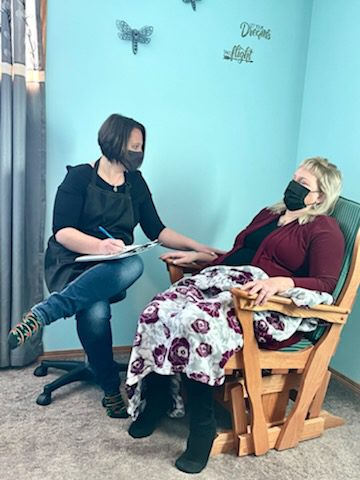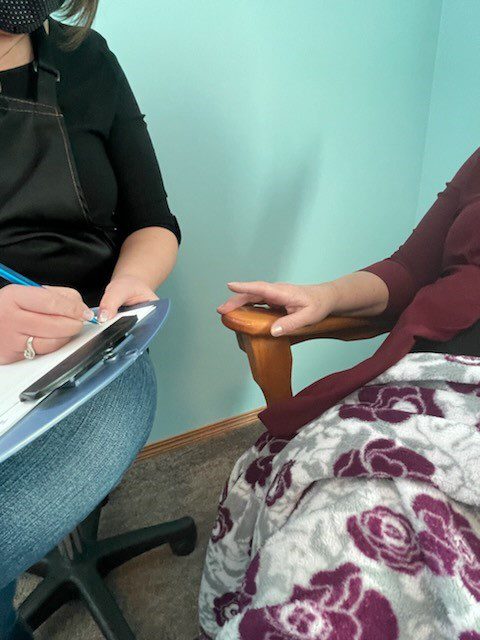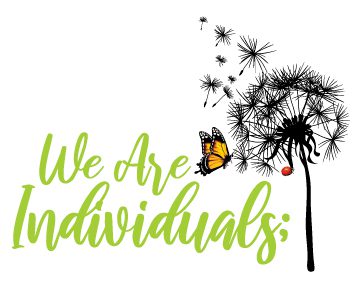-Can Hypnosis/Hypnotherapy help in the areas of anxiety, depression, and stress? The answer to this question for a lot of individuals is “yes”, BUT you must be in the right frame of mind…you cannot be experiencing suicidal thoughts or taking any mind-altering drugs or medication (consult your doctor first). If you are experiencing suicidal thoughts, you must seek medical help right away. You need to get to a hospital asap (as soon as possible)…and do not let yourself be alone. Call a friend or family member immediately.
Before Western medicine was used extensively in treating anxiety, depression, and stress, part of a psychologist’s training involved leaning hypnosis. As years went by, hypnosis slowly has been basically taken out of the curriculum.
Hypnosis can also be used to stop smoking, weight loss, quitting addictions, ease or even get rid of phobias or even pain… and the list goes on.
What is Hypnosis?
Hypnosis is a state in which your mind is relaxed. A few examples of hypnotic states are
1.) when you are “daydreaming”
OR
2.) when you are driving from point A to point B and you do not remember exactly all that has happened in-between both points (departure and arrival) because your mind was on other things like… for example… what happened at work that day.
Hypnosis is a state of being. It is a state when your mind is more opened to suggestions. In this state your conscious mind relaxes, and your subconscious mind takes over…with sometimes a little “chatter” from your conscious mind. Your mind is in a state of heightened awareness and the perception of time is also distorted (what seems like minutes could be hours or visa versa).
What is the Difference Between Hypnosis and Hypnotherapy?
The difference between hypnosis and hypnotherapy is directly related to the education that the person doing the session has…the education and papers behind their name.
A hypnotherapist is someone who has a degree as a medical doctor, nurse, or someone in the medical field, or is an individual who has a degree in psychology. This person has also studied and has taken hypnosis classes. These individuals will use their studies to help people to over come addictions, phobias, or they could help their clients in areas dealing with anxiety, depression, stress, or even physical challenges.
A hypnotist is a person who has classes/courses studying hypnosis, but they do not have a degree in the medical feild or in psychology. They may choose to focus more in the entertainment area of being a hypnotist. (This is the area that most people know and think when they hear the terms hypnosis or hypnotist). What many people do not realize is that there are people studying hypnosis who also want to help people heal from stress, anxiety, and depression. NOTE: Always make sure you research and get references when looking for a hypnotist or hypnotherapist. DO NOT just go to anyone. Make sure the individual is a reportable source and has the correct papers to be practicing this modality/therapy.
Hypnotherapy and hypnosis sessions usually use generic scripts that the hypnotherapist or hypnotist may tailor to address each individual client’s session.
NOTE: Each time you are hypnotized it becomes easier for you to go into the state of hypnosis in each time/session. Hypnosis is NOT a state of sleeping…it is a state that your mind shifts…it allows you to adjust and alter your way of thinking…if your subconscious mind agrees with the suggestions that the hypnotherapist or hypnotist provides you with and they do not go against your own personal values, then you will accept the new belief and you will change. If your subconscious mind does not believe or will not accept the suggestion given by the hypnotherapist or hypnotist, then your beliefs, attitudes, and actions will not change. You must want to change before you will accept the hypnotherapist’s or hypnotist’s suggestions…and only when you are ready to accept the change… that’s when you can heal both physically and mentally.

What is the Simpson Protocol Approach to Hypnosis?
The Simpson Protocol approach to hypnosis takes a bit of a different approach to the typical approach to hypnosis/hypnotherapy. When you have a Simpson Protocol Hypnosis treatment, your fingers do the talking. Your fingers will answer “Yes” or “No” to the questions asked by the hypnotherapist/hypnotist. In my opinion, it is a very individual approach to hypnosis and not just a generic script. The hypnotist/hypnotherapist talks to your subconscious mind, so the answers come from your subconscious. Your subconscious mind only provides you with the information that you need to heal. Most “issues/challenges” can be addressed in three sessions… some may take a few more sessions depending on the individual being hypnotized.
Also remember, we do not live in a “bubble.” You may heal from one trauma/issue/challenge (event) with hypnosis…but that does not prevent you from experiencing another “event” (trauma/issue/challenge) in your life. You may require additional hypnotherapy/hypnosis treatments to deal with each event (trauma/issue/challenge) that you experience through out your life in the years that follow…and that is okay. All you need to do is take it day by day because there is help and there are ways to heal just don’t give up…there is help out there.
The founder of Simpson Protocol is Ines Simpson. Ines is Canadian and she lives in British Columbia. Ines and her team of instructors have taught numerous doctors, nurses, and other individuals around the world with this amazing approach of using hypnosis as a tool to heal people mentally and physically. Ines has many wonderful and inspiring stories that she shares with her students when she is teaching the course.
Another great thing about the Simpson Protocol approach to hypnosis is it provide an opportunity for the practitioner to use hypnosis, but to also teach their clients self-hypnosis. It is a tool that can be used by an individual to continue healing at home and between sessions.
Ines said in our course:
Hypnosis helps change attitudes, which is the key to changing behavior. — Ines Simpson
Now Ines and her team of instructors are also teaching Self-Hypnosis classes, so you can learn to hypnotize yourself if you do not like the idea of having someone else hypnotizing you. Learning to do self-hypnosis can come in very handy when you are getting a surgery or dental work for example. (If you are going to do self-hypnosis before a surgery or dental work, you need to let your surgeon or dentist know prior to putting yourself into the state of hypnosis).
I practice self-hypnosis, and I also get a Simpson Protocol Hypnosis treatment once a month. These treatments have helped me not only with my mental health, but they have also helped me with my physical health.
I discovered hypnosis the fall after our son passed away. It truly helped me through that very difficult time in our life. As I mentioned above, I get a treatment once a month usually or when I feel I need more healing. It was definitely a game changer for me.
If you are looking for someone that practices the Simpson Protocol approach to hypnosis, this link will take you to people that have been certified to practice this approach to hypnosis. Remember it is being used around the world in hospitals and mayo clinics.
https://simpsonprotocol.com/certified-simpson-protocol-practitioners

